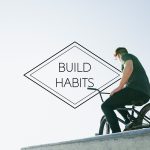What do we need sleep for?
Sleep is a necessary component for a healthy life, both mentally and physically. But how important is sleep to our productivity? Vastly important. Tiredness isn’t just a mindset, it’s a real problem that affects many people. It’s easy to use tiredness as an excuse for not doing something. Saying, “I’m too tired to start [that thing you’ve been meaning to do], I’ll start it in the morning”. But that never happens. The perfect conditions to start your thing will never arrive. You need to start it, no matter the excuse, no matter the tiredness.
But there is one major component to help get you in the mindset for doing the task. It’s a better sleep, and developing a good sleeping pattern. The average 20-60 year old needs about 7-8 hours of sleep every night to maintain optimal, cognitive brain activity. Any less than this and you start to suffer from sleep deprivation. Meaning that your reactions, alertness and motor coordination can suffer compared to if you’re getting the full amount of sleep that your body needs.
What does getting your 8 hours a night mean to your body, and what effect does it have on the brain? We need sleep to repair and recover. When you sleep, your body is repairing itself from the ‘damage’ sustained from the day before. When you train at the gym or a sport, the body is repairing physically, likewise, your brain is always processing the events of the day beforehand and repairing from that, either from stress, or by learning and processing knowledge.
Sleep helps strengthen your long-term memory. It helps consolidate and retain information, and form long-term memories about facts, knowledge, and figures. Sleep helps you remember the knowledge you learn over time and your ability to recall on that knowledge. This is why staying up late to study before an exam at the expense of your sleep is a bad idea in the long run.
When you wake up in the morning after a full night sleep, you feel fresher. But why? Your brain clears itself from metabolic waste accumulated from the day’s neural activity. The result gives you clear head in the morning when you wake up you’re able to process information faster. Thus the old proverb to ‘sleep on it’.
Sleep is crucial to your metabolism. The more sleep you have, the more likely your body is to use energy from fat cells, thus burning fat. Whereas, the less sleep you get the more likely you are to burn from carbohydrate and protein cells. Sleeping helps you lose weight.
Of course, all of this to say that you must have a good life-balance with other aspects and not rely on sleep to make you healthy. You also need excercise and a good diet to help provide a healthy lifestyle.
‘Sleep debt’ is the idea that missing sleep has a long-term cost that accumulates over time, and is something that you can’t just sleep your way out of. If you’re sleeping bad during the week, then you can’t simply sleep and recover that time over the weekend. Sleep debt can spiral downhill in terms of cognitive performance. The irony that we are sacrificing sleep and rest in favour of more work. When in reality the cost in performance doesn’t add up to the work done. Meaning employers are losing out, monetarily, by not putting the health and well-being of their employees first. To recover from sleep debt, you must have concurrent sleep pattern, not just one or two days of the week where you recover the sleep lost during the week.
Sleep cycles work in a system of REM and ‘slow wave’. Slow wave sleep is a period in the sleep cycle where the body relaxes. It generally lasts for about 1.30 hours. During which time the body’s temperate drops, blood pressure drops, and the brain becomes less responsive to external stimulus. This is a period of deep sleep, in which the body does most of its repairs of a physical nature i.e tissue and muscle damage.
REM (Rapid Eye Movement) is a period where the brain comes to life, and repairs itself mentally. During this phase, the brain clears irrelevant information and helps stimulate neural growth and retention of knowledge, helping to form memories. During REM the body increases its internal activity, blood pressure rises, body temperature rises and your heart rate increases.
How to get a better sleep
Having explained how important sleeping is to us and how it can be used to increase our energy and processing power, how do you get a better sleep in order to increase your productivity? There are a number of steps you can start to introduce immediately into your routine;
- ‘Cool-down’ period – During which, you switch off from doing intensive activity, both mentally and physically. Physical activity close to bed time will only increase your heart rate and body activity, making it harder for your brain to ‘cool down’ and switch off for time to rest. Limit physical activity close to bed time.
- Get outside – Get some fresh air. When you are outside, your body absorbs vitamin D through your skin. Vit D helps to fight against depression, boosts weight loss, and is good for skin and hair. Helps promote a better night sleep.
- Lose the screens – Blue/white screens from laptops, monitors, phones and tablets can have a dire effect on making you drowsy before bed. This harkens back to the ‘circadian rhythm‘. A cycle that’s founded on a human’s daily routine and starts back when humans would rise at sunlight and sleep from sundown when hunting and gathering in tribes. Some studies suggest that ‘blue light’ from screens resets the ‘circadian rhythm’ and helps promote alertness and cognitive behaviour, which decreases your tiredness and lowers your ability to fall asleep.
- No sugar, caffeine, or smoking. All of these raise blood pressure and increase your heart rate (among other unhealthy defects) thus making it tougher to fall asleep.
- Dedicated rooms. Office for work, bedroom for rest, den for play. By separating your activities into their own distinct rooms for particular outlets, you’re helping differentiate to your brain what activity is associated with what room. Helping to build a habit and routine.
Utilising your newfound energy
There is nothing better than a good night sleep. And by introducing some of the steps mentioned above, you will find yourself feeling more energetic and hopefully attain a new lease on life. I suggest reading more into the topic and how beneficial it can be to your health and overall happiness.
So now that you have your new sleeping routine in place and you’re full of energy? It’s all well and good to be sleeping great, but how do you maximise your productivity when you first wake up with your newfound energy?
- Plan ahead – Make a task list the night before of the 3 things you would like to do the next day. When you wake up, the list will already be there and you can tackle the hardest thing on the list with your increase in energy. Instead of waking up to waste brain power and time thinking of what has to be done next. Some times the toughest things seem like nothing when you have a fervent amount of energy to pump into it. Even something as easy as laying your clothes out the night before can help with your new morning routine.
- Produce in the morning. Don’t consume – Airplane mode engaged. No social media, no phone calls, no emails, no articles, no reading, no alerts, no notifications, no texts. Basically no time-wasting involved whatsoever. In the morning, your brain is cleared of all the information processed from the day before. Why waste that new, clear processing power from last nights sleep on endless scrolling on Facebook?
If you want to take your routine to the next level. You can go to bed earlier and wake earlier. Early wake, daily work. Work on something that means something to you. Work on what matters to you. Be it your career, a side hobby, a passion, a relationship, your health. With your new energy to pump into work that matters, you will create even better content faster with a clearer head and increased productivity. Think of when you come home from your day job and you are drained and making excuses for not showing up to do the work. If this is your mentality then training yourself into an earlier sleeping routine so that you may get up earlier to do great work.
There is an unwritten rule that some makers and creators live by; 6AM club. Whereby your train yourself to get up at 6AM and follow the 2 rules above. No phones, no distractions, just working on what you love while the rest of the world is asleep.
Feet on the floor, no snooze button. The more you snooze, the more you lose.
If you want to read more about this topic and how waking early is such a benefit, my very first blog post was about sleep, you can read it here – Blog #1



